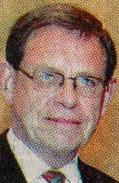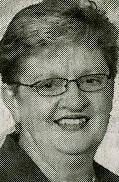Sins & Silence
Culture of Catholicity in the Area Made Discussion
of Incidents Taboo
By Mary Nevans-Pederson
Telegraph Herald [Dubuque IA]
March 5, 2006
http://www.thonline.com/story_news_frontpage.cfm?ID=110664
[See the main
page of the Sins & Silence series for links to all the articles and
letters to the editor.]
The first Roman Catholic priests came to Dubuque in the early 1830s, sent
into the untamed lands along the west side of the Mississippi River by
Bishop Joseph Rosati of St. Louis.
The Diocese of Dubuque was created in 1837, including what are now the
states of Iowa and Minnesota and parts of North and South Dakota. The
diocese was subdivided over the years, and the current archdiocesan boundaries
were established in 1902.
 |
| Thomas Doyle |
During the 1800s, Catholics from across Europe - especially from Germany,
Ireland and Luxembourg - flocked to the fertile fields and forests of
northeast Iowa. They soon erected churches and filled them every Sunday.
Parishes, schools, motherhouses and seminaries flourished in the archdiocese,
and local Catholics considered their priests and bishops revered and honored
spiritual leaders.
A culture of Catholicity pervaded the city of Dubuque, sometimes nicknamed
"Little Rome" for the number of religious edifices built on
its blufftops. Bathtub grottos dotted neighborhoods. St. Joseph statues
helped sell houses. Friday fish fries were social highlights.
| "In this highly Catholic environment, there is a mystique
surrounding priests. They get special considerations and are shown
deference. Catholic kids are in awe of, are petrified of priests." The Rev. Thomas Doyle, describing the culture of Catholicity in the Midwest |
"Dubuque was a very Catholic city where the church had a lot of
power and influence. It is deeply embedded in the culture," said
the Rev. Thomas Doyle, OP, who studied at a Dominican school of theology
in Dubuque for six years and was ordained a priest by Archbishop James
Byrne in 1970.
Doyle is a canon lawyer who has been a longtime advocate for victims of
clerical sexual abuse. His views ignite heated debate within the Catholic
Church and he said he has lost several positions because of his outspoken
opinions. He is best known for warning United States bishops in 1985 about
the number of predatory priests within their parishes.
Doyle has been an expert witness in more than 500 cases of clerical sexual
abuse and has testified before several grand juries. His affidavits were
part of the settlements between victims of clergy abuse and the church,
including the Davenport (Iowa) diocese and Dubuque archdiocese.
"In this highly Catholic environment, there is a mystique surrounding
priests. They get special considerations and are shown deference,"
said Doyle, 61. "Catholic kids are in awe of, are petrified of priests."
It is an ideal situation for a pedophile priest.
While hundreds of priests were pious and honest men, some were not. Of
the 683 priests who have served the archdiocese since 1950, 47 (7 percent)
have been accused of sexual abuse - ranging from inappropriate touching
to rape.
Most victims are males, but some women have been molested by archdiocesan
priests.
Because of what he calls "religious duress," Doyle said children
are so fearful that they are incapable of publicly disclosing their abuse.
Their parents seldom believe them, and the wider Catholic community often
supports the perpetrator instead of the children.
The abuse was seldom reported to civil authorities, if it was reported
at all. If archdiocesan officials found out that a priest had abused a
child, they kept it quiet to avoid scandal and to protect the young victims.
Personnel records are spotty for some years. Bishops admonished the abusers
and often sent them to out-of-state treatment centers paid for by the
archdiocese.
Mental health experts usually assured the archbishops that the priests
had been "cured" of their psychosexual dysfunction, so the prelates
gave the priests new parish assignments.
Some unlucky parishes had multiple predatory priests on their rosters.
Over a 20-year period in tiny Garber, St. Michael Parish was the assignment
of the Revs. Albert Carman, John Peters and Robert Reiss - each of whom
abused children.
Sacred Heart Parish in Oelwein was served by the Revs. William Goltz,
Thomas Knox and Robert Swift in a 13-year span.
"Fifty years ago, there was more confidence in psychiatry that these
issues could be cured. If it happened today, the archbishop would likely
not reassign a priest," said Monsignor James Barta, vicar general
for the archdiocese.
Archbishop James Byrne moved a number of accused priests from parish to
parish during his tenure (1962-83). Barta described Byrne's leadership
method as "a much more spiritual way."
"He would talk to the priest and pray about it," Barta said.
Doyle said that because of his piety, Byrne was possibly not capable of
believing that priests in his diocese were abusing children.
Many attitudes have changed over time, and so have the points of view
of archdiocesan leaders. For one thing, if someone says he or she was
abused by a priest, the claim is considered legitimate from the start.
 |
| Joyce Connors |
"We listen to all stories assuming they are true," said Joyce
Connors, director of the Office for the Protection of Children and Young
People, whose background is in psychology and counseling.
In addition, the archdiocese will get civil authorities involved from
the beginning, including reporting the accusation to the police. If it
is a current case of a minor being sexually abused, "it will be out
of our hands for the most part," said Connors, because law enforcement
will take over the investigation and prosecute if charges are brought.
The church also now recognizes how damaging childhood sexual abuse can
be.
"There is anger, grief and a sense of loss for what might have been
if the abuse had not happened," Connors said. "In all the high
emotions, we haven't seen any that are inappropriate."
Any original material on these pages is copyright © BishopAccountability.org 2004. Reproduce freely with attribution.